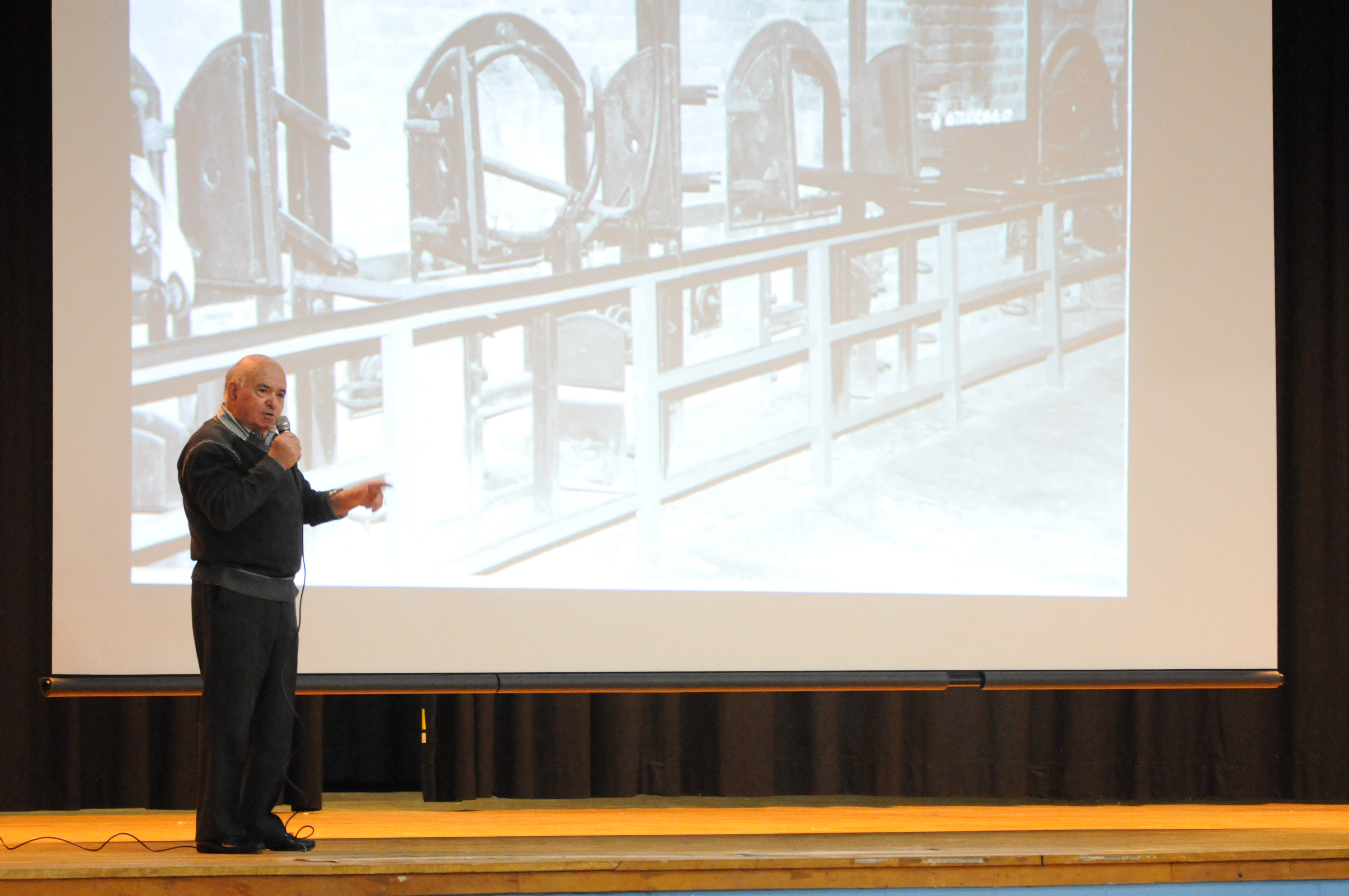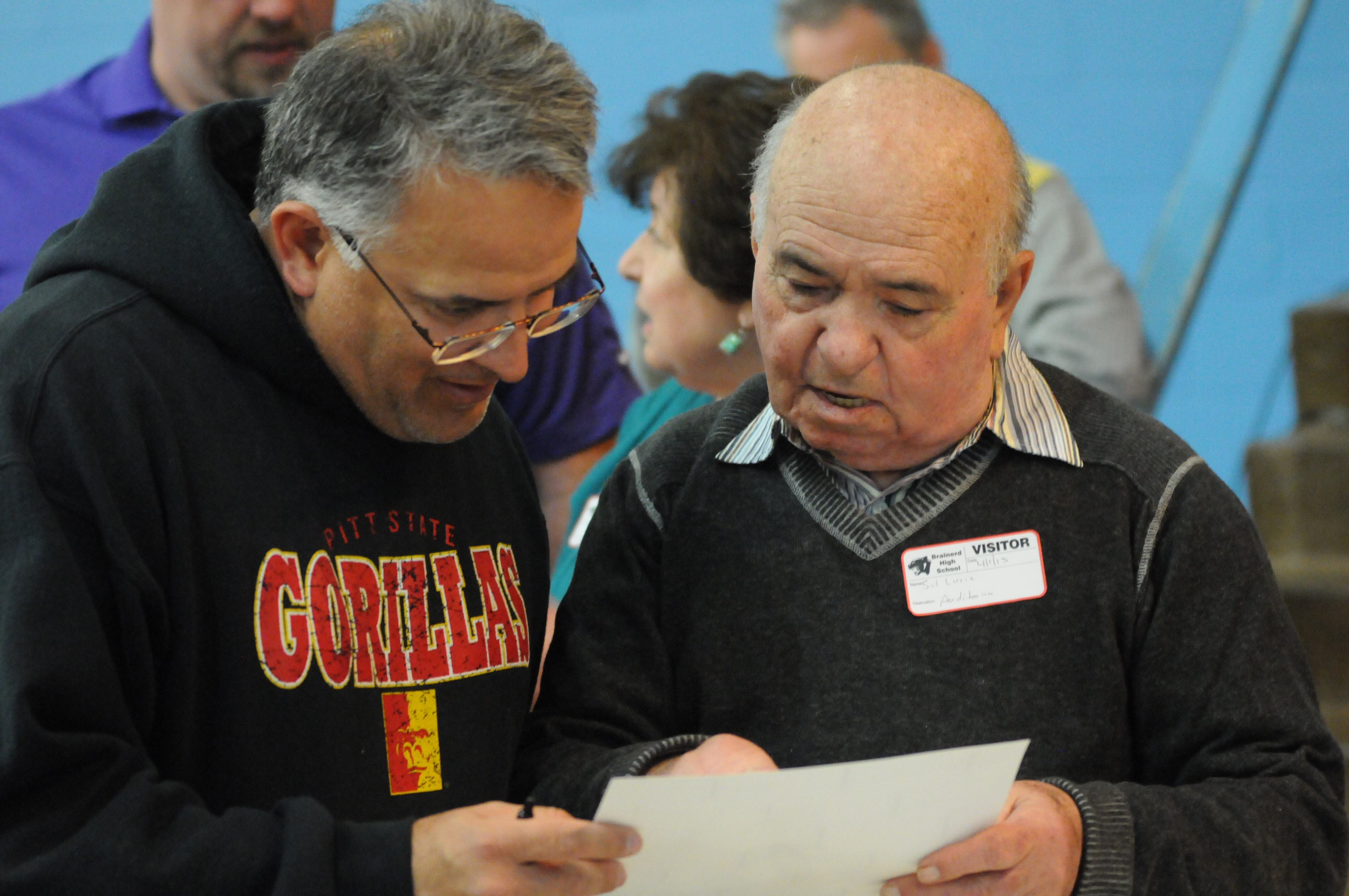IF YOU GO* What: Days of Remembrance of Victims of the Holocaust program.* When: 2 p.m. Sunday; victims names read at 1 p.m.* When: C.C. Bond Humanities Building, Chattanooga State Community College, 4501 Amnicola Highway.* Admission: Free.* Information: 332-2041.
When Brainerd High School ninth-grader Camarrius Rice learned in social studies class that millions of people perished in World War II's Holocaust, he was dubious.
Millions? It just seemed a bit farfetched.
But earlier this week, Camarrius met Sol Lurie, a Holocaust victim, and saw up-close the B2858 number that had been tattooed on Lurie's arm when he was a pre-teenager, the number that Nazis put on Jews when they entered concentration camps.
"I wanted to meet somebody who'd been through it," Camarrius says. "He showed me his number. It's like a discovery. He is a survivor. That's what he is."
Lurie, who was a Lithuanian Jewish boy of 11 when he was taken prisoner by Nazis in 1941, spoke to students at Brainerd and Howard high schools this week and will be the keynote speaker for the Days of Remembrance of Victims of the Holocaust program on Sunday.
A resident of Monroe Township, N.J., and the father of Chattanooga's Girls Inc. President and Chief Executive Officer Bea Lurie, he was in six German prison camps during World War II. He witnessed acts no child should see before being liberated by Allied forces on April 11, 1945.
"Nobody in the world lived what we lived through," he says. "We were treated like ants. If they felt like killing you, they killed you."
Lurie, for instance, saw babies thrown in the air and gored by bayonets and adults buried alive. He once had to hide in an outhouse receptacle -- as in down in the muck -- when being chased by German soldiers.
Until nine years ago, he never talked about his experiences, saying "they were too painful to remember." But at that time, his step-granddaughter was learning about the Holocaust and begged him to come to her school to speak. Eventually, he relented and now claims "they can't shut me up."
MESSAGE OF LOVE
While Lurie has a compelling story to tell and an amazing memory for details, his message for high school students today is simply to love and not to hate.
"When you love," he says, "it makes you feel good, and it makes the other people feel good," he says. "We have a beautiful world to live in. But it's not the world that makes the people. It the people that make the world."
Bringing his story closer to the largely black Brainerd High, Lurie related the story of a scared black child being chased by bullies who ran up to him while he was washing his car outside his New Jersey home in 1963. He sent the child inside his house, refused the bullies' directive to hand him over and stood his ground until they left. Then he went inside, fed the child, gave him $5 and drove him home.
"Stand up to bullies," Lurie says, "and help one another. Fight for something; don't complain."
Sadly, he says, events such as the Holocaust didn't end the racism, anti-Semitism and discrimination that fostered the horror in the first place.
"It's happening today," Lurie says. "Some [countries] that were hiding the Jews" during World War II "are now discriminating against them. People are having problems because of religion ... they say mine is better than yours. Being a good human being -- that's [the crux of] my religion. You decide [how you will be treated], not someone else."
"FOR TODAY AND TOMORROW"
Sylvia Wygoda, chairwoman of the local Days of Remembrance event, says the program is based on an annual program at the U.S. Holocaust Museum in Washington, D.C. Its goal is to "pay tribute to lives lost due to hate," she says.
"This program will attest to the reason people should appreciate differences in other people because we do not know who the next victims of such an atrocity might be," she says. "By conducting and attending a program like this, we might not have a repeat of such history."
Wygoda, whose grandmother, brother, uncle and members of her father's family disappeared in the Holocaust, says the program is not only a tribute to those who died but also to the Allied soldiers who liberated the concentration camps and brought an end to the war.
Indeed, she says, the program remembers victims, perpetrators, rescuers and bystanders. Hopefully, such programs will encourage people not to be bystanders, she says.
In addition to Lurie's talk, Sunday's program will include an eight-minute video presentation from the U.S. Holocaust Museum explaining why, even today, people need to commemorate what happened.
"[It's] for today and tomorrow, not for yesterday," says Wygoda, who led Holocaust education programs in Georgia for 30 years, "so we in Chattanooga can have a better community in which to live."
The program also will include a candlelight ceremony featuring Holocaust survivors, children of survivors, grandchildren of survivors and children of the military liberators of concentration camps; brief stories about relatives of local residents; remarks by Mayor-elect Andy Berke; the reading of a joint proclamation by the city and county mayors; prayers by a minister and rabbi; colors presentation by the Arnold Air Force Base Honor Guard; and music by a violinist and vocalist.
For an hour prior to the program, names of Holocaust victims -- including relatives of local residents -- will be read.
Contact staff writer Clint Cooper at ccooper@timesfreepress.com or 423-757-6497. Subscribe to my posts online at Facebook.com/ClintCooperCTFP.


